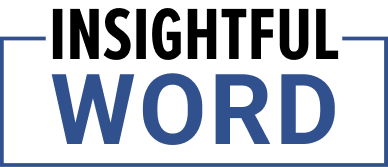Shares of United Therapeutics jumped nearly 40% on Tuesday’s opening trade after the company reported its inhaled lung therapy Tyvaso met the main goal in a late-stage study for idiopathic pulmonary fibrosis (IPF).
The treatment, already approved for pulmonary arterial hypertension, showed marked improvement in forced vital capacity (FVC) over 52 weeks in a 597-patient study.
FVC measures the amount of air a person can forcefully exhale and is a key metric in tracking IPF, a disease that progressively scars lung tissue and makes breathing increasingly difficult.
“These results demonstrate meaningful progress for patients living with a devastating condition that currently has limited treatment options,” the company said in a statement.
FDA talks planned for this year
United Therapeutics said it intends to meet with the US Food and Drug Administration before the end of 2025 to discuss expanding Tyvaso’s approval to include IPF.
If successful, the drug would compete against current standards of care such as Roche’s Esbriet and Boehringer Ingelheim’s Ofev.
Shares of MannKind, which partners with United Therapeutics on a dry powder formulation of Tyvaso, also spiked, climbing nearly 36% before the market opened.
The stock was trading 30% higher at the time of writing.
Market opportunity in for IPF treatment
IPF affects around 100,000 people in the United States each year, underscoring the scale of unmet medical need.
The global market for IPF treatments is projected to grow at a compound annual rate of 6.8% through 2030, reaching about $5.5 billion.
By contrast, the market for pulmonary hypertension linked to interstitial lung disease (PH-ILD), where Tyvaso already has an indication, is smaller but expanding steadily at a 3.9% rate.
Tyvaso’s dual positioning in both IPF and PH-ILD offers the company a chance to diversify its revenue base and reduce dependence on any single disease area.
Previous studies have already shown benefits for PH-ILD patients, including improved six-minute walk distance, a common measure of exercise capacity.
United Therapeutics’ financial strength supports expansion
United Therapeutics reported second-quarter 2025 revenue of nearly $799 million, with Tyvaso contributing close to 60% of sales.
The product’s 18% year-on-year growth reflects both increasing adoption and premium pricing.
Gross margins of more than 89% further highlight the therapy’s profitability.
The company also maintains a strong financial position, with $1.2 billion in cash reserves, even as research spending rises to support pipeline programs.
A $1 billion share repurchase program announced in July 2025 reinforced management’s confidence in long-term prospects.
Regulatory hurdles remain
Despite optimism, risks persist.
The FDA’s retroactive awarding of exclusivity to Tyvaso’s dry powder inhaler version has sparked controversy, with some critics arguing it favours large pharmaceutical groups.
Regulatory scrutiny could affect how quickly the drug secures approval in IPF.
Nevertheless, analysts view United Therapeutics as well positioned.
Its track record with orphan drug designations and drug-device innovations has helped the company defend its niche and maintain pricing power.
Should you invest in UTHR?
According to AInvest, for investors, Tyvaso’s progress underscores the appeal of biotech plays focused on rare, high-barrier conditions with few therapeutic alternatives.
“United Therapeutics’ Tyvaso exemplifies the ideal biotech investment: a high-margin, defensible therapy targeting rare, progressive diseases with limited alternatives,” it said.
“While competition and regulatory scrutiny persist, the company’s financial strength, R&D focus, and strategic market positioning reinforce its long-term potential. For investors seeking exposure to a high-barrier, innovation-driven play, Tyvaso’s trajectory in IPF and PH-ILD markets offers a compelling narrative,” it said.
The post United Therapeutics surges as Tyvaso succeeds in IPF trial: should you invest? appeared first on Invezz










